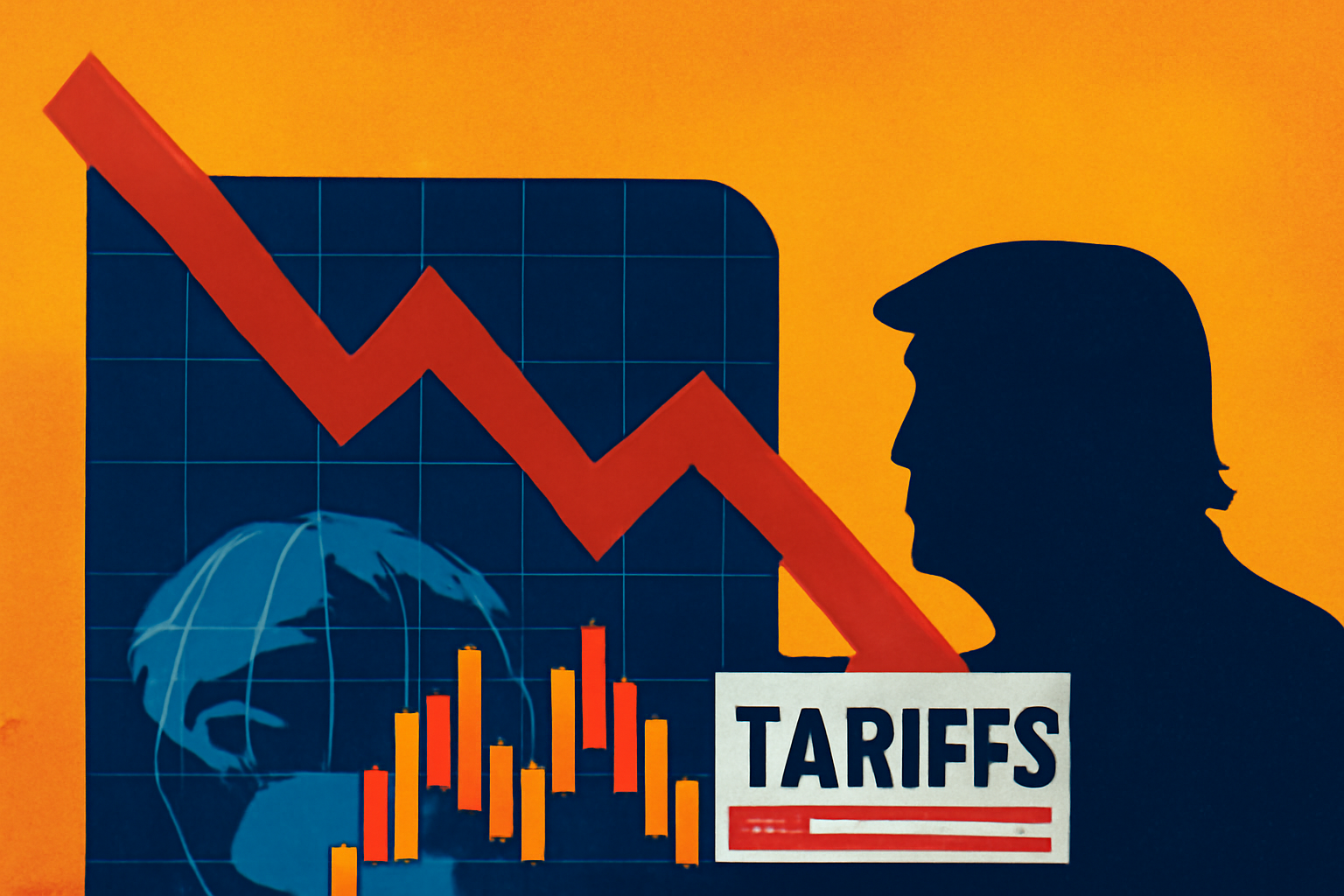Stock markets around the world tumbled this week following President Trump’s announcement of sweeping new tariffs—ranging from 10% to 70%—set to take effect in early August. The tariffs, targeting a wide array of imports from countries including China, Germany, and Mexico, have reignited fears of a global trade war, injecting uncertainty into equity markets already on edge from slowing global growth and geopolitical tensions.
U.S. Retaliation or Protectionism? The Market Reacts
The tariff announcement came during a high-profile speech at a “Fair Trade for America” summit, in which President Trump vowed to “protect American jobs and industries from unfair foreign practices.” According to administration officials, the measures will target steel, auto parts, semiconductors, consumer electronics, and certain agricultural products.
Investors were swift to react:
- The S&P 500 fell 1.8%, marking its largest single-day drop in over two months.
- The Dow Jones Industrial Average lost 540 points amid broad-based declines in industrial and manufacturing stocks.
- International markets followed suit, with Germany’s DAX dropping 2.1% and Japan’s Nikkei falling 1.6%.
Currency markets also responded, with the U.S. dollar strengthening as investors sought safety, while export-driven currencies like the Chinese yuan and South Korean won came under pressure.
Why This Matters for Investors
At its core, this development threatens global supply chains, corporate profit margins, and investor confidence—especially in sectors reliant on cross-border trade. Companies with heavy foreign input exposure could face higher costs, while exporters may experience retaliatory tariffs and reduced international demand.
Historically, similar tariff actions—like those during the 2018–2019 U.S.-China trade dispute—led to:
- Elevated volatility in equity and bond markets
- Earnings downgrades in key sectors such as semiconductors, autos, and manufacturing
- Delayed capital expenditure and hiring plans among multinationals
This new wave of protectionist measures could have similar chilling effects, particularly if trading partners respond in kind.
Peter Boockvar, Chief Investment Officer at Bleakley Financial Group, commented to MarketWatch:
“If this escalates, we could see Q3 corporate earnings guidance cut sharply. This is not just a tariff headline—it’s a potential margin compression event.”
Sectors to Watch Closely
- Industrials & Manufacturing: Firms like Caterpillar, General Electric, and Deere & Co. are highly sensitive to global trade volume.
- Semiconductors & Tech Hardware: Companies like Intel, Qualcomm, and Texas Instruments may face supply chain disruptions.
- Retail & Consumer Goods: Brands with offshore production—such as Nike or Hasbro—could be impacted by rising input costs and delayed shipments.
- Commodities & Agriculture: Tariff retaliation from China or the EU could hit U.S. soybean, beef, and pork exports, weakening agribusiness revenues.
Future Trends to Watch
- Retaliatory Tariffs and Global Diplomacy
Key trading partners have already signaled possible countermeasures. Watch for formal announcements from the EU Commission, China’s Ministry of Commerce, and Mexico’s Secretariat of Economy. - Market Volatility Indicators
The CBOE Volatility Index (VIX) jumped to 22.4 after the announcement, its highest in months. Elevated VIX levels suggest ongoing investor anxiety, especially ahead of key earnings season and central bank decisions. - Revisions to Trade Agreements
The tariffs may strain or re-open existing agreements like USMCA, and complicate multilateral cooperation at venues like the G20 or WTO.
Key Investment Insight
Investors should prepare for increased volatility and sector-specific risks in the short-to-medium term. A prudent approach involves:
- Diversifying geographically and sectorally to reduce overexposure to trade-sensitive industries.
- Rotating into defensive sectors such as healthcare, utilities, and consumer staples, which tend to perform better during periods of uncertainty.
- Monitoring company guidance closely during upcoming earnings calls for any early signs of cost pressure, supply chain stress, or capex delays.
As always, staying informed on diplomatic developments and tariff implementation timelines is essential. A disciplined, flexible investment strategy will outperform reactionary decisions driven by short-term market swings.
Get sharper, faster insights into every market-moving headline with MoneyNews.Today—your trusted source for investor intelligence in real time.





